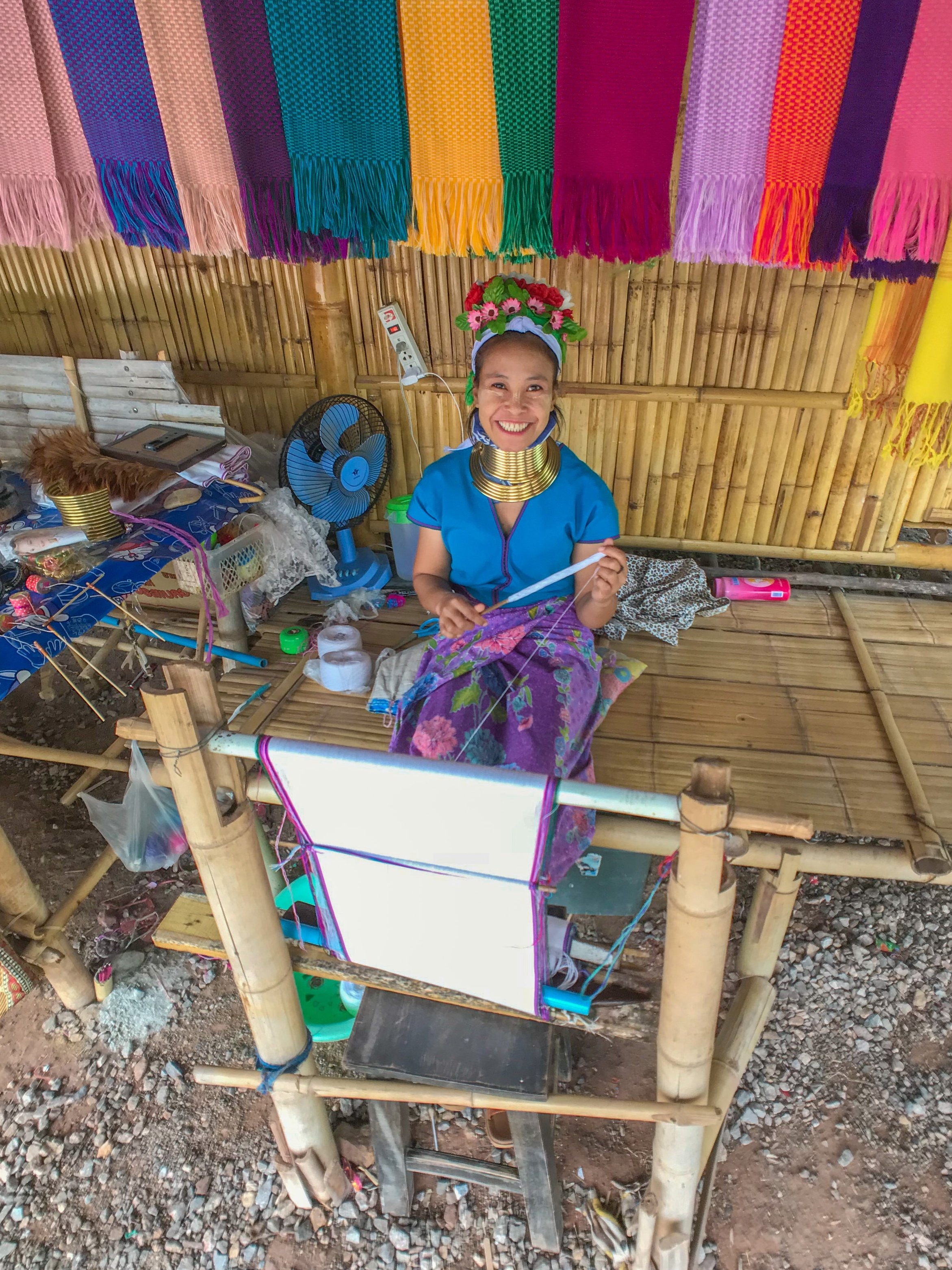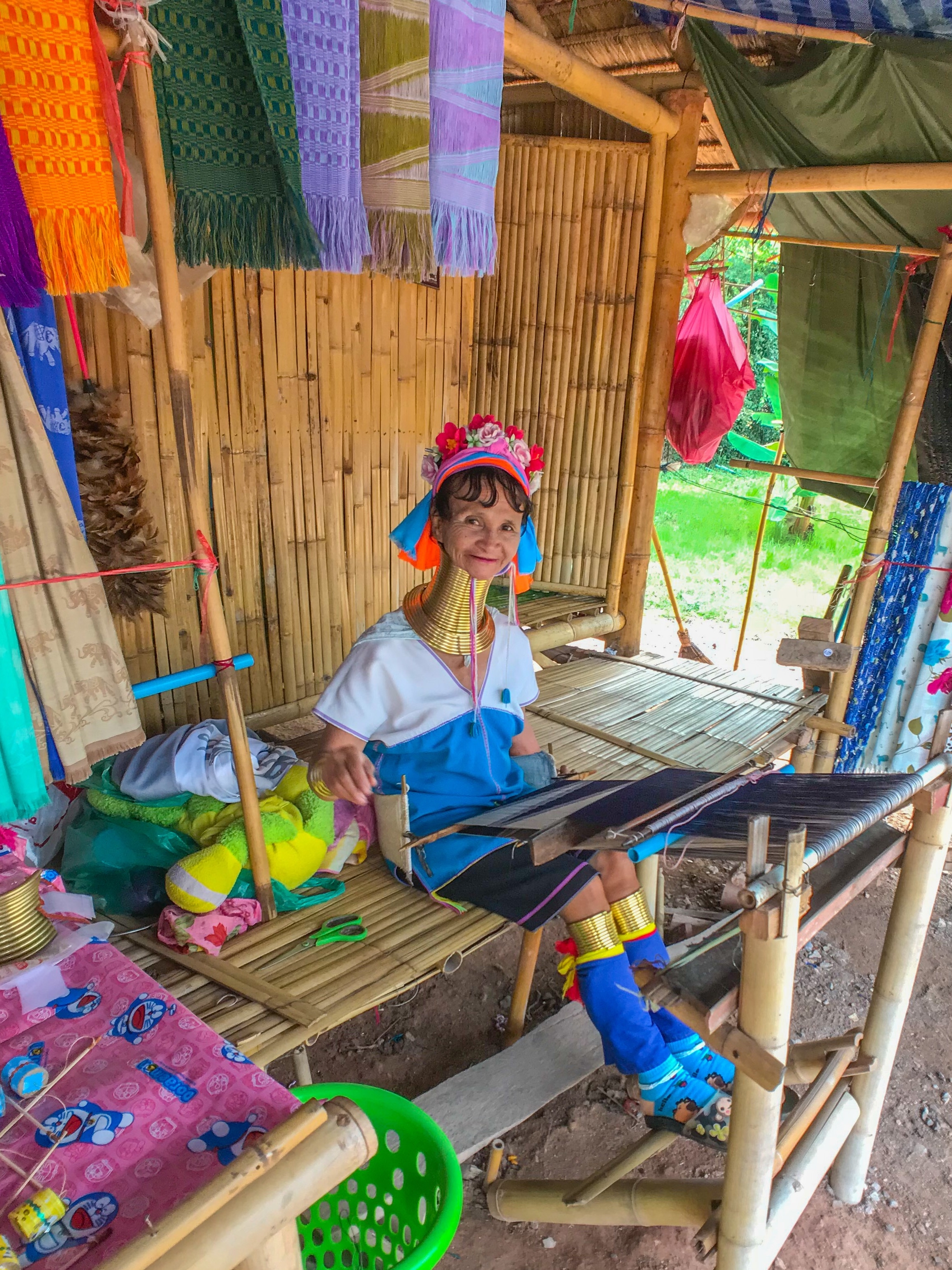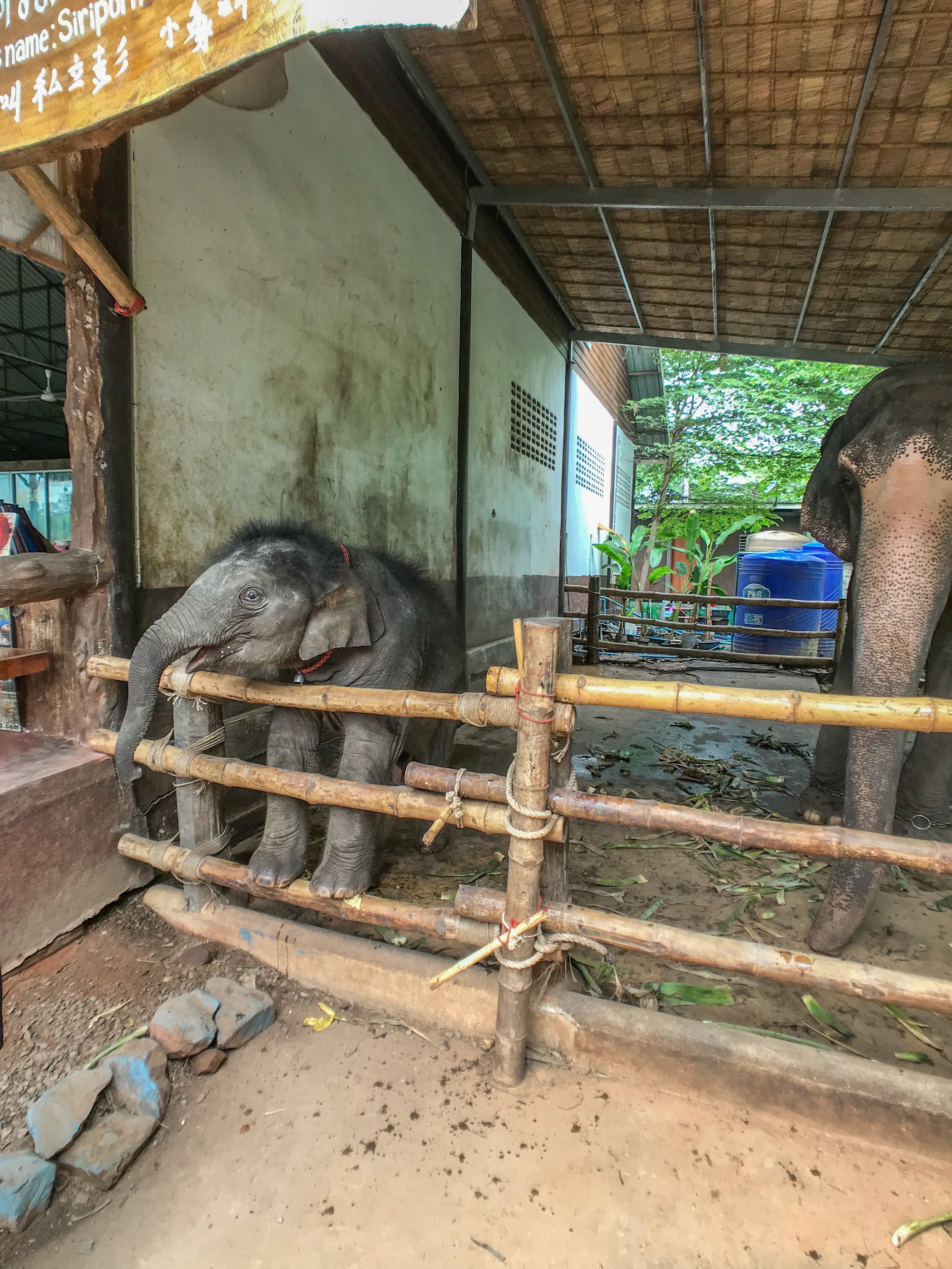Did I Visit a Human Zoo in Thailand?
With only 3 days in Bangkok, I decided to maximize my time by joining day trips that would take me to several sites. One of the day trips was to the famous floating markets and, I would later learn, to a theme park where tourists could chose from a diverse menu of animal exploitation: elephant riding, baby tiger petting, crocodile show, or monkey show. A far less popular option was a trip to the "Long Neck Village", where you could get to know an indigenous tribe whose livelihood is supported by the admission fee.
Thailand is well-known for its exploitative elephant rides that not only are cruel to animals, but are also dangerous for their handlers, or mahouts. As any proper animal advocate would do, I skipped the elephant rides and pleaded with everyone I met to also boycott this cruel industry. I stuck up my nose up at the heartless tourists who whisked off to ride elephants despite my pleas, held my head high, and waited for "the car" (golf cart, actually) to drive me to the village.
Many Karen women appear to love meeting tourists in the Long Neck Village
The Karen sell handicrafts and textiles to tourists to support themselves
A "dragon lady" smiles inside one of Thailand's human zoos
Seeing the image of the "Long Neck VIllage" people displayed alongside all of the animal shows should have been my first clue that something was wrong. I was genuinely excited to meet the villagers and thought they may be happy to meet a tourist interested in real cultural exchange. Looking back, I feel naive and stupid.
The Karen Tribe and Tradition
We learned how the women stretch their necks with brass rings as part of a long-standing cultural tradition. A girl gets her first golden ring at age 5 and rings are added until she’s 21. The women even sleep with the rings on, taking them off only once a year for 3-4 hours. According to Karen people, the longer the neck, the more beautiful the woman, who is described as being beautiful "like a swan".
Pamphlets explained that The Karen people are a tribe that migrated from the Burmese-Thai border 60-70 years ago to escape war and violence but my guide said the people were forcibly relocated because it’s illegal to live in the jungle and cut down trees (which the people used for their livelihood). It's always hard to know what the truth is, especially when there is such a strong ethical dilemma involved. Brochures explained how Thailand created the Long Neck Village because they "want to conserve the lifestyle tradition and language" but my research after-the-fact suggested that the women in these faux villages are nothing more than cogs in Thailand's tourism money-making machine.
Friendly Dragon Ladies
The first "dragon lady" I met was all smiles and exceptionally cheery. Her enthusiasm seemed genuine as she encouraged the three other people in my group to pose for pictures. I initially declined but she pulled me toward her and gave me a fake gold ring neck prop to wear for the picture she kept encouraging me to take. The English-speaking guide encouraged us to take pictures and reminded us that photos are included in our admission ticket, which goes to support the tribe. The next two women I met were a little quiet but also seemed friendly and happy enough to chat, though their English was very minimal.
The first "dragon lady" I met encouraged me to pose for a pic with her
This "dragon lady" was all smiles until she wasn't. I put away my camera
The mix of truth and lies we were fed at the village
Is This a Human Zoo?
Ironically, I visited this village to avoid the exploitative elephant rides, only to find myself inside a human zoo. Five minutes into my visit, it was clear that some women did not enjoy making small talk with tourists and were only interested in getting them to buy textiles and handicrafts. Toward the end of the village, a couple of young mothers looked downright sad, as though living in this quasi human zoo had, understandably, sapped all of their energy and dignity.
I attempted to make a cultural connection and bought a scarf that I didn't need in order to support their livelihood but I left feeling crappy. Yet another example of Western privilege and white privilege. Hopefully men who have visited feel extra bad due to their male privilege. :)
As someone who considers them self to be a thoughtful and conscious traveler, I am deeply disturbed by the Long Neck Village and am embarrassed that I took so many pictures before realizing that the situation was not okay. I try to rationalize my experience. After all, the Karen escaped war and violence and can now live in peace, earning money in the tourism industry. That may be true, but it doesn't mean they are happy and it definitely doesn't mean that it's okay to shove your camera in someone's face when they are visibly uncomfortable.
What would you have done?
Have you witnessed other instances of human exploitation abroad? How have you handled it?
Leave your comments below!
I bought a scarf I didn't need or want, attempting to ease my consciense
Unable to avoid animal cruelty - enslaved elephants outside the Karen Village
I hadn't even noticed anyone taking my picture until someone tried to sell it to me









